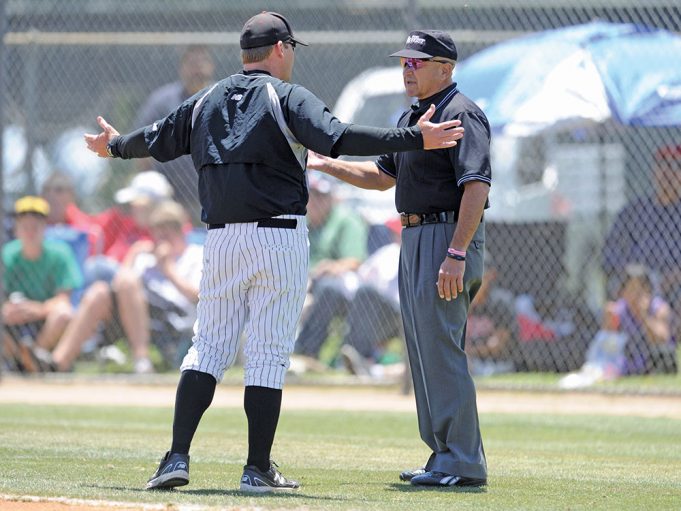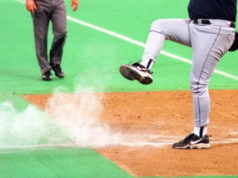The failure to follow a mercy rule is probably not enough by itself to make an official liable for a player injury. However, it can be a factor that leads to an official being liable.
Officials are subject to the same principles of negligence law as anybody else. Officials are negligent, and can be liable for player injuries, if the official breaches a duty when a player gets injured and there’s some reasonable connection between the breach of duty and the injury. An official’s failure to apply a mercy rule is a breach of duty. However, it is not necessarily a breach of duty that has a clear connection to an injury.
A mercy rule is applied when one team is so far ahead in a game that the opponent has no opportunity to come back. Typically it is applied to end the game more quickly and prevent one team from hugely running up the score, and the attendant bad feelings that can occur on the losing team.
It is easy to draw a direct connection between an official’s failure to inspect a basketball court and a player slipping on a water spot. It is not necessarily easy to draw a direct connection between a mercy rule violation and a subsequent injury. Clearly, something other than the mercy rule violation contributed to the injury. When one factors in that most injuries are directly caused by a person, a sports implement or a facilities flaw, it often becomes rather difficult to link an official’s failure to enforce the mercy rule to an injury. Still, that link can be drawn and officials can be held liable.
Mercy rules can be tied in to an official’s duty to control the game. Officials are expected to have the training and skill to control a game, and they are supposed to apply the rules and exercise judgment that is reasonable for the level of play they’re working. Officials can be liable where they can be shown to have made sufficient errors to move out of the reasonable range of what the sports community expects for the level at which the official is working. But assessing errors isn’t always enough. There are times where officiating becomes more art than science, and the notion of what is reasonable boils down to balancing the need for enforcement against the need to maintain the expected flow of the game for the level of play.
An official can be shown to have breached their duty to control the game by a single error. They can also be shown to have breached their duty to control the game through a totality of actions. This chipping away can eventually lead to the official being perceived as negligent and can make something as small as missing the clock stopping in a running-clock-mercy-rule situation lead to the official being liable for an injury.
Chipping away at officials is not a particularly good thing. To err and to breach duties is inherent in sports. Officials will occasionally err. Holding them liable for normal officiating errors may not be in the best interest of sports. Some states have recognized this by passing limited liability legislation that exempts officials from liability for injuries unless they’re grossly negligent.
An official can be shown to have breached their duty to control the game by a single error
Officials can derive two lessons from this. First, an accrual of small errors can make officials look like they’re not controlling the game. Second, consult local counsel to see if your state has a limited liability statute.
Even a small matter like an inadvertent violation of a mercy rule can create large problems under the wrong circumstances.
What's Your Call? Leave a Comment:
Note: This article is archival in nature. Rules, interpretations, mechanics, philosophies and other information may or may not be correct for the current year.
This article is the copyright of ©Referee Enterprises, Inc., and may not be republished in whole or in part online, in print or in any capacity without expressed written permission from Referee. The article is made available for educational use by individuals.


















